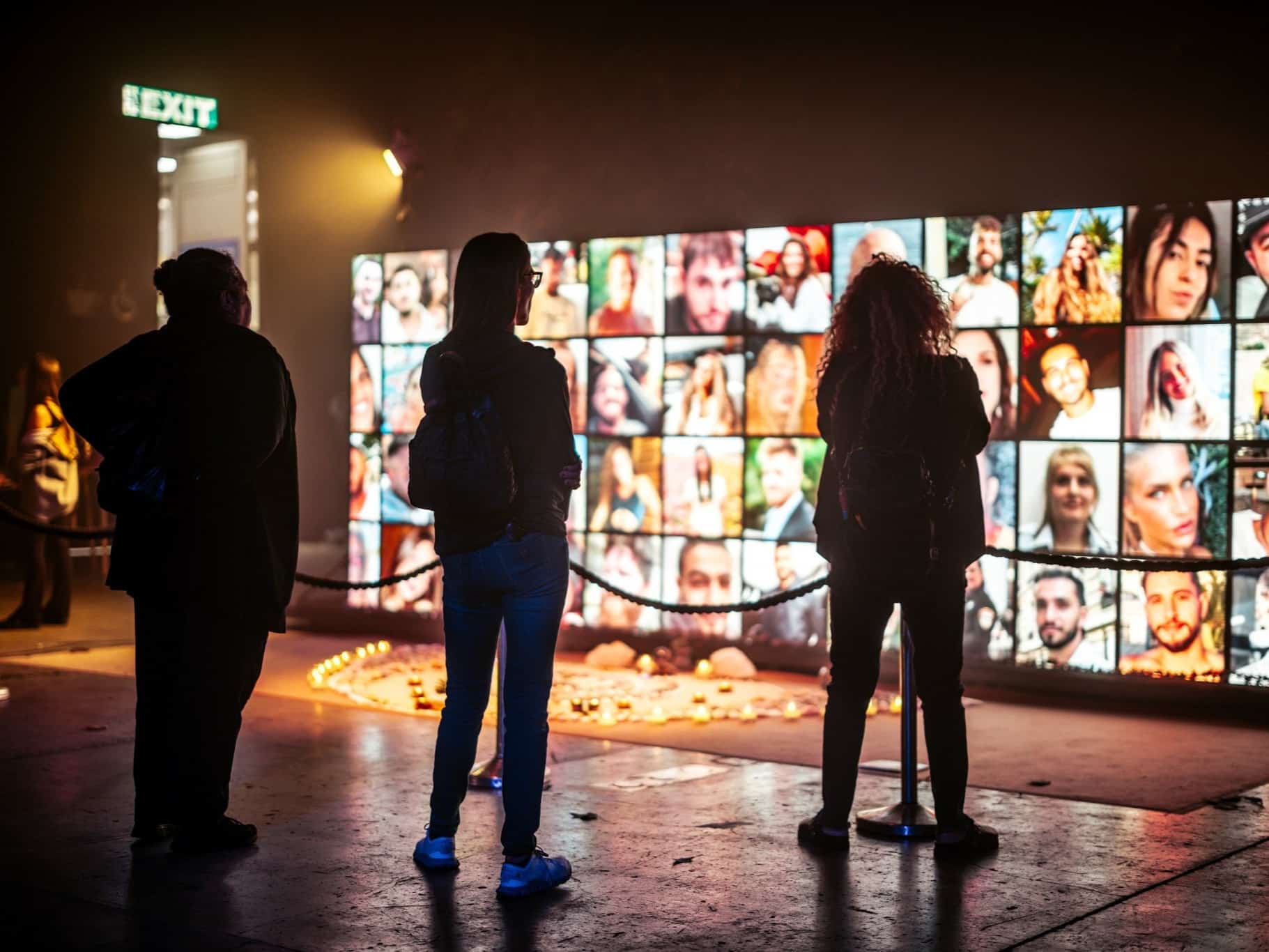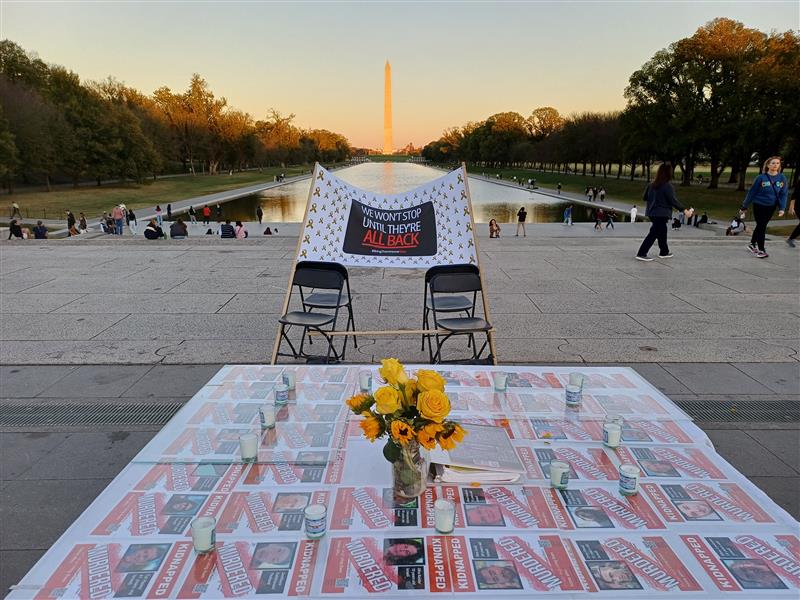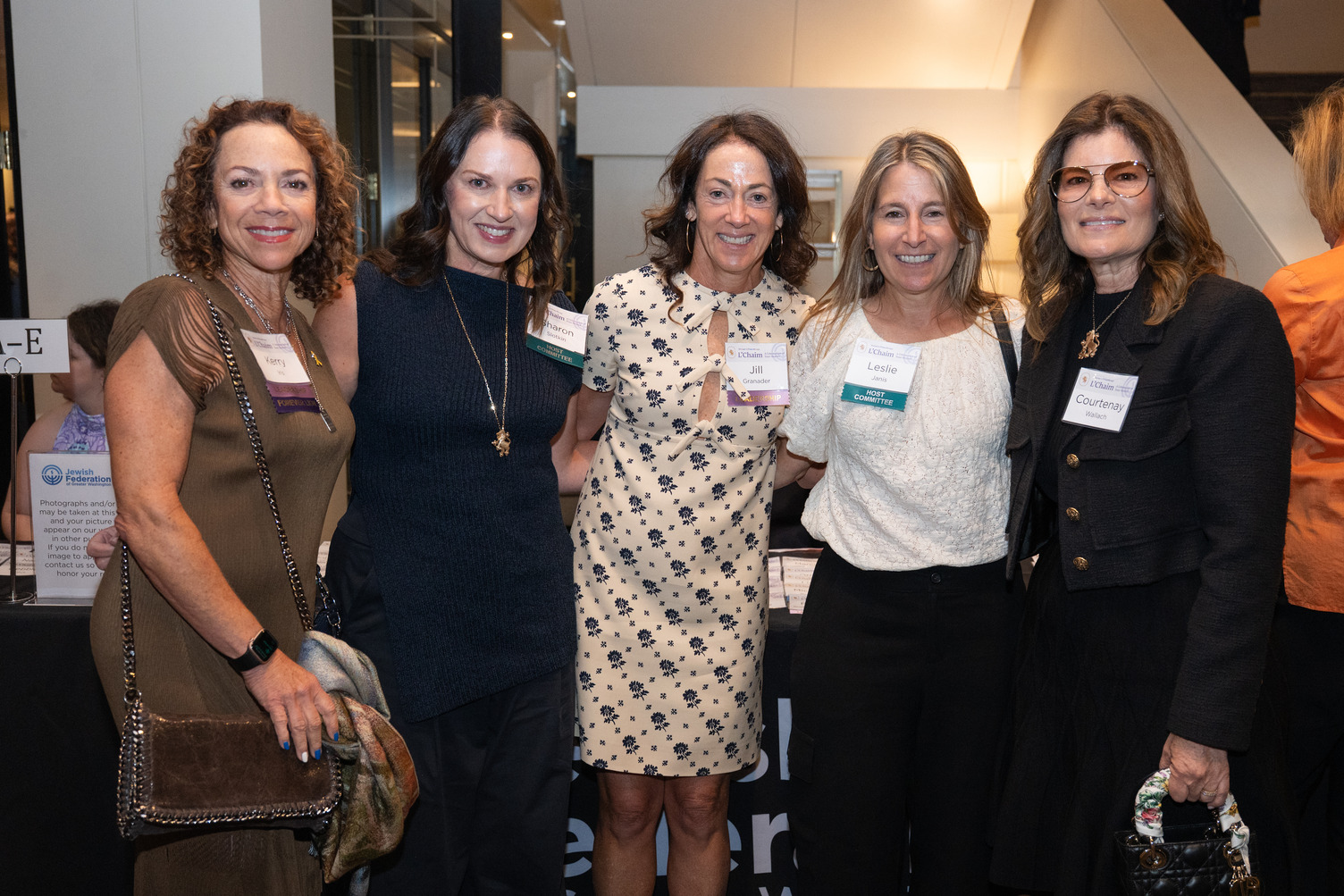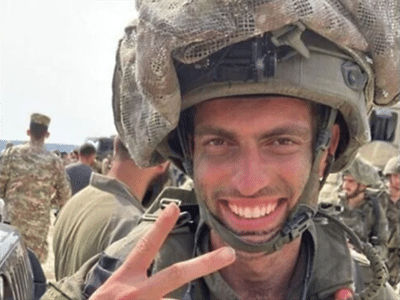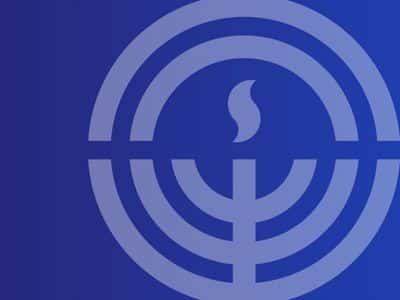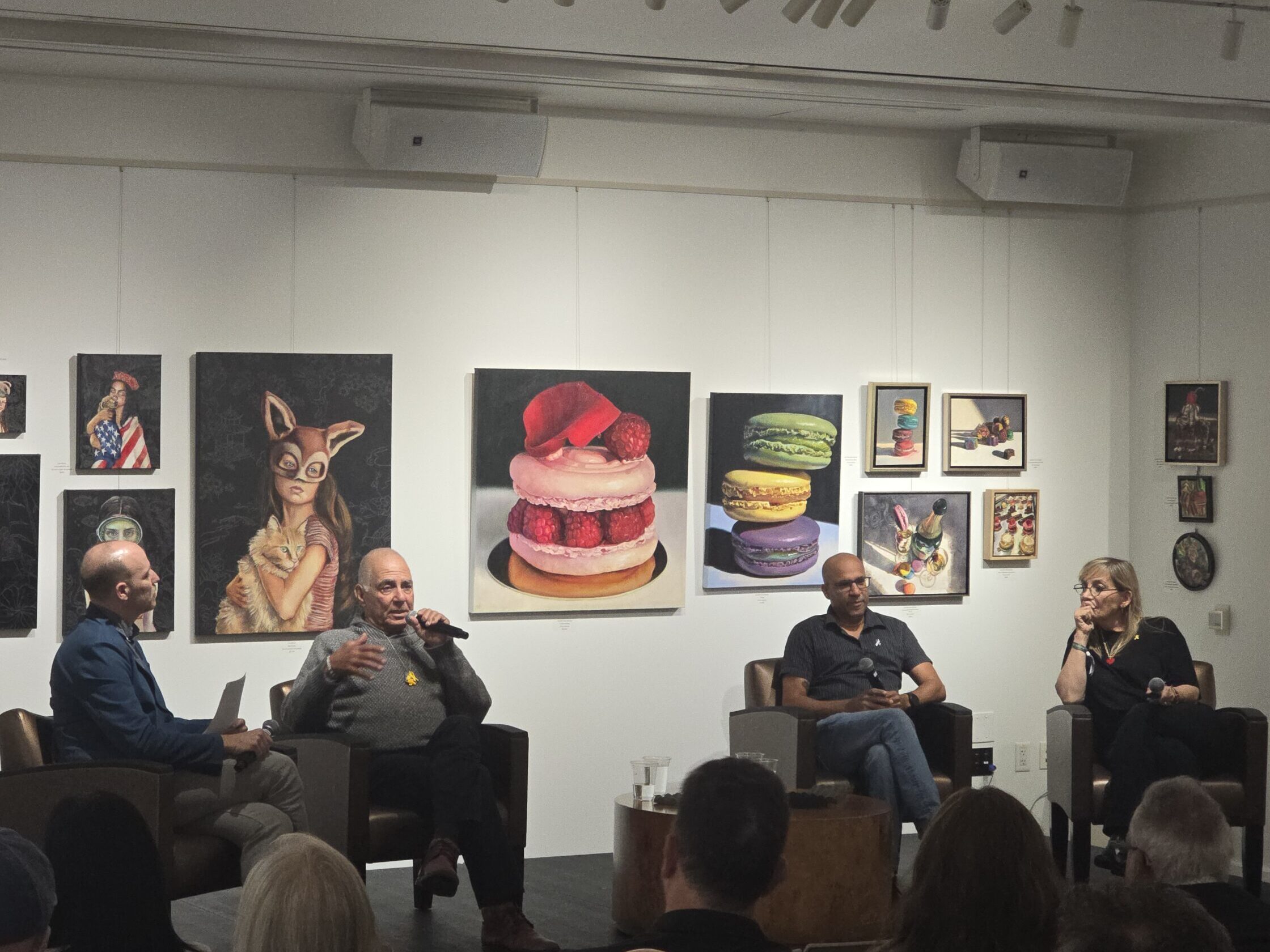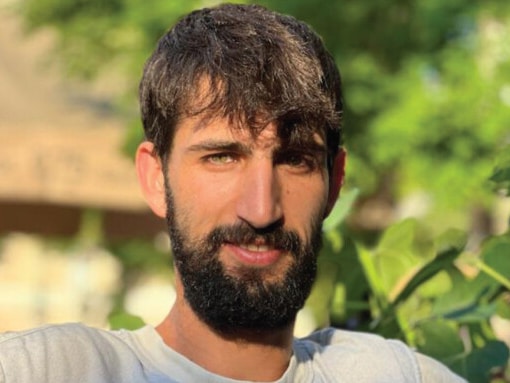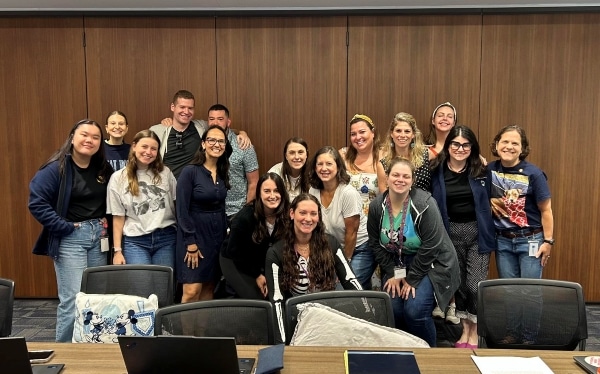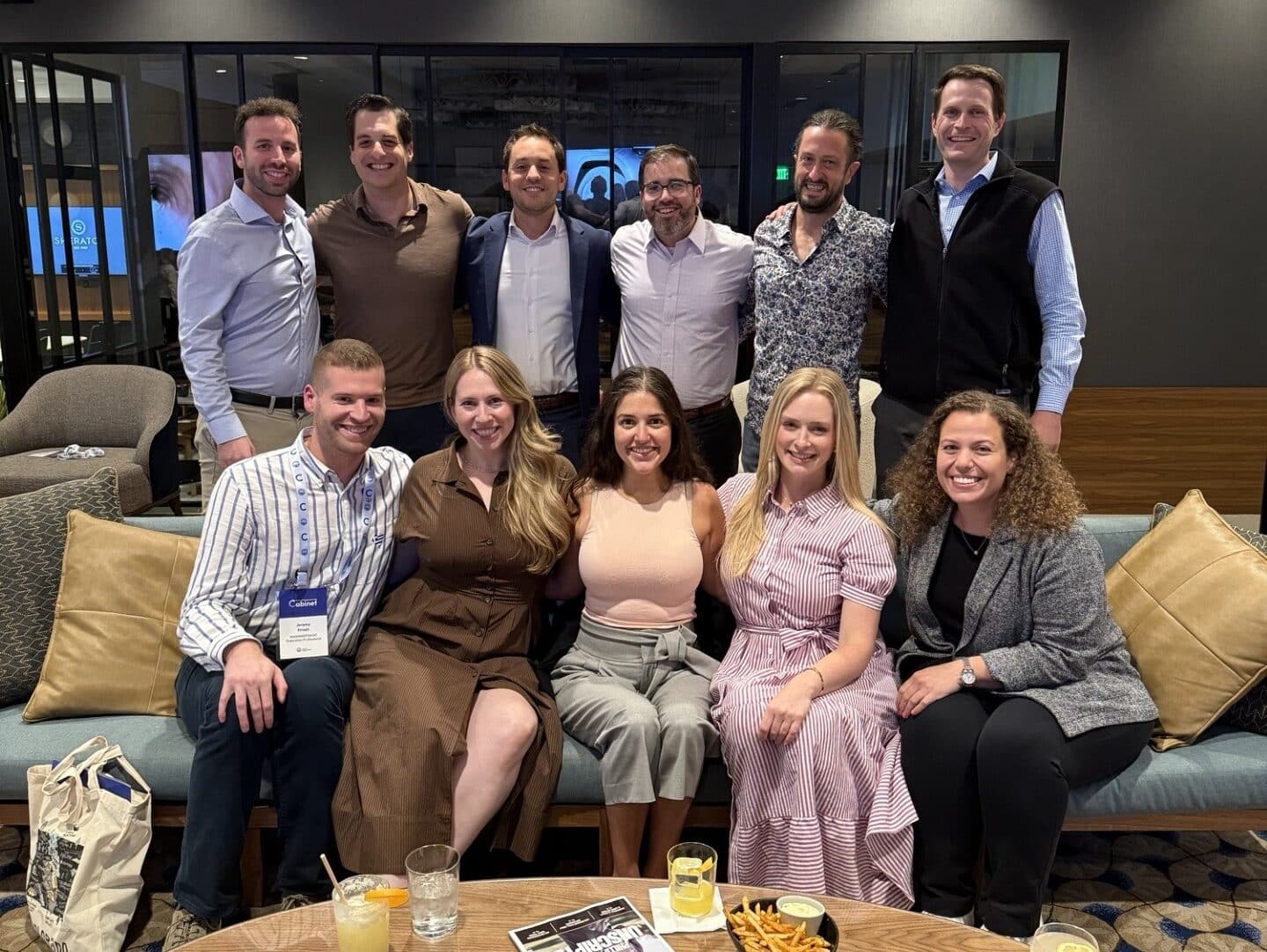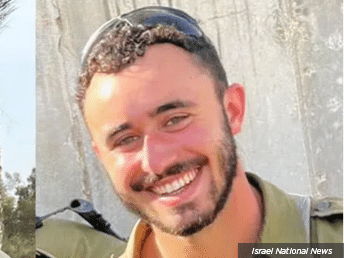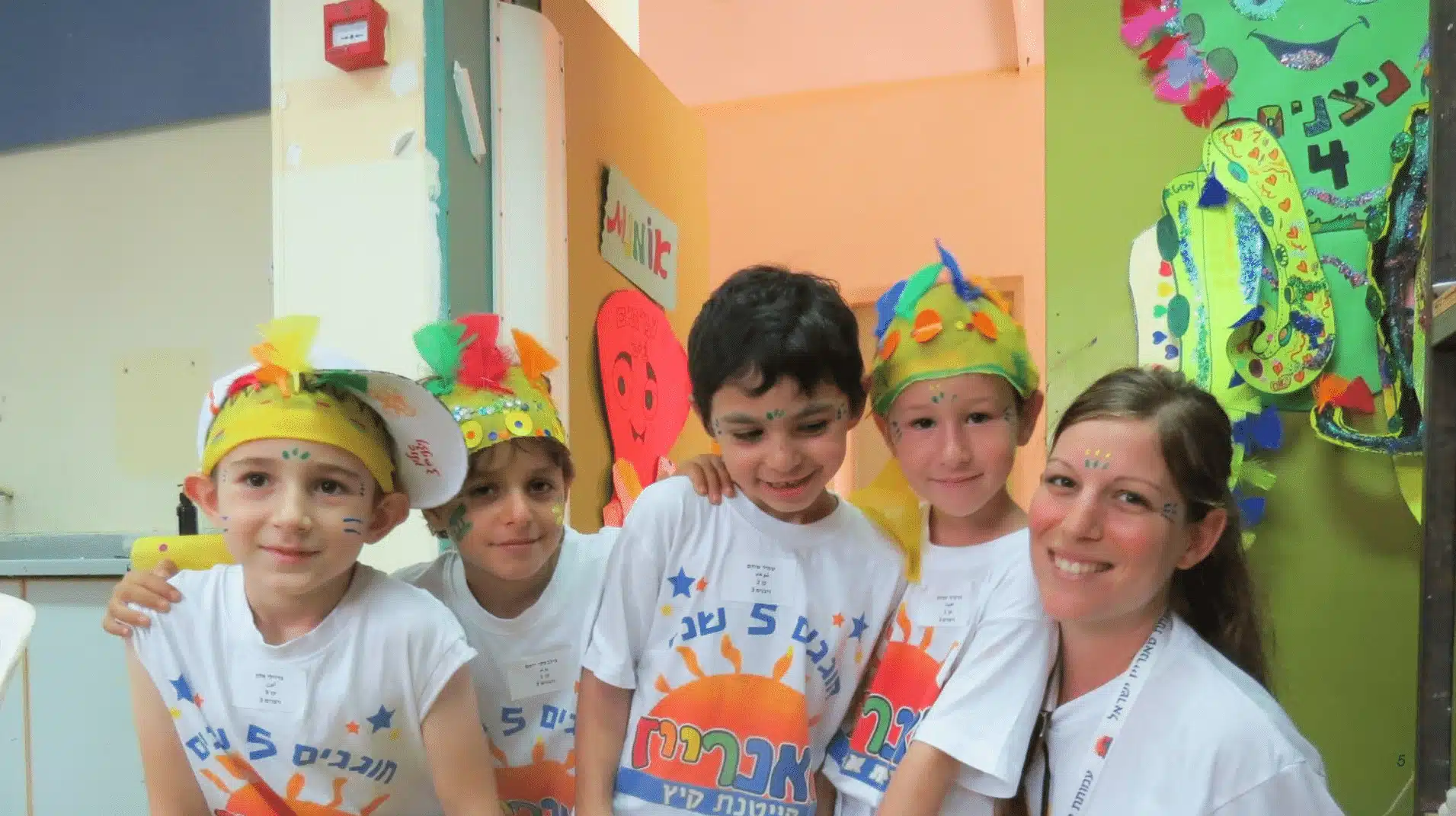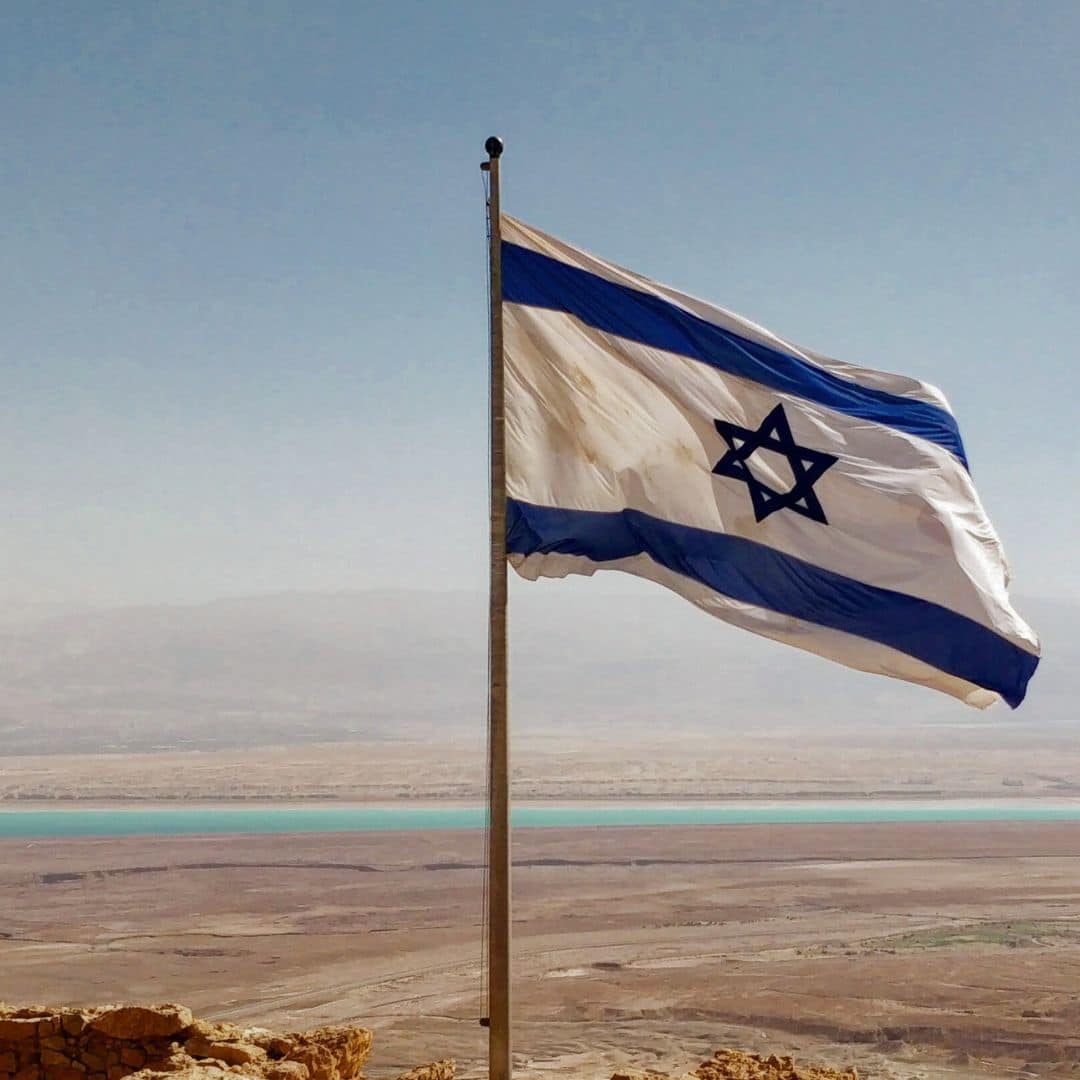Our Greater Washington Jewish community is providing essential aid to those in Israel and continues to send a powerful message of solidarity to Israel and Israelis in their time of need, from October 7th to the latest escalation of tension in the region with Iran and their proxies. Your generosity and our staff on the ground in Israel year-round with deep partnerships built over decades empowered Federation’s immediate and long-term response. Today, this includes addressing the well-documented and widespread trauma experienced by both Israeli soldiers and civilians since the onset of the war and support for economic development and resilience as well as direct community support to Israelis. As the economy suffers from the effects of war — due to the displacement of a quarter of a million people from their homes and businesses — Federation is committed to ensuring Israelis can receive critical financial relief. Below are the recipients of this round of funding.
Together, we are addressing Israel’s urgent and evolving needs. Our Israel Crisis Relief Fund grants to date total over $11.5 million, including our inaugural grantmaking efforts by the Fund for Women and Girls through the Jewish Community Foundation by The Jewish Federation of Greater Washington.
Emergency Response
Emergency and Medical Care | $1,025,000
Magen David Adom, United Hatzalah, Assuta Ashdod Hospital/Medical Center, Barzilai Medical Center, Sheba Medical Center, and Soroka Medical Center (Be’er Sheva): Providing access to life-saving supplies and essential trauma counseling to help treat severely wounded soldiers and civilians, including to reach the 2,200 survivors of the Nova Music Festival, and purchasing oxygen tanks, defibrillators, trauma bandages, tourniquets, and more.
Emergency Volunteers Project (EVP): Deploying American disaster relief and rescue volunteer teams to Israel. Our funding will assist in recruiting and training American firefighters, medical professionals, and others to be deployed to assist Israeli teams and provide relief for the Israeli teams exhausted after weeks of providing life-saving assistance.
Mobilizing Support for Evacuees & Displaced Families | $550,000
Brothers and Sisters for Israel: Mobilizing volunteers and critical resources for those in need in partnership with the largest Israeli civil aid organization. Our funding will help provide essential support including accommodations for displaced families, food, water, clothing, medical equipment, assistance in locating missing individuals, and more.
Dror Israel: Funding evacuation efforts for displaced families and those seeking respite from violence. We are expanding and supporting essential therapeutic and educational programs for children and families in Rehovot and Ashkelon, with more locations opening as soon as deemed safe. Funding also covers daycare costs for children of hospital workers and other essential staff so they can treat the injured while schools across Israel remain closed.
Hostages and Missing Families Forum: The Forum is a volunteer-based organization focused on bringing Israeli hostages home. They are leading awareness campaigns in multiple languages around the world and providing professional assistance to advance the ongoing legal and diplomatic efforts to return the hostages. Our support will provide resources to continue this crucial work.
Caring for Victims of Terror and their Families | $500,000
Fund for Victims of Terror, a program of The Jewish Agency for Israel: Supporting families whose loved ones have been injured or killed, as well as those whose homes and property were damaged or destroyed, by providing immediate financial aid, counseling, housing, and more. A Jewish Agency representative personally visits victims to provide emergency aid within 48 hours as a statement that the Jewish people around the world are with them.
Trauma Response | $500,000
Israel Trauma Coalition (ITC): Providing immediate trauma response across Israel, including in Ramle, where ITC has opened a center to identify victims. Our funds will provide treatment at ITC’s 12 resilience centers in Sderot and surrounding communities — centers Federation has funded for years — and to train and support first responders, teachers, and community leaders managing this crisis.
Direct Support for Kibbutz Bordering Gaza | $250,000
Kibbutz Re’im: Assisting with recovery and rebuilding. The Kibbutz was overrun by Hamas on October 7th, with five Israeli casualties, multiple members taken hostage, and 200 suffering severe trauma. Hamas also overran a music festival on the kibbutz grounds, leaving hundreds dead and many others wounded or taken hostage. The funds will be used to help fund basic necessities while the kibbutz members are out of their homes as well as purchase and install closed-circuit cameras and early warning systems for the kibbutz perimeter to protect community members when they return.
Humanitarian Support for Soldiers | $186,000
Friends of the Israel Defense Forces (FIDF): Providing critical medical and humanitarian support for IDF soldiers, including the 360,000 reservists called up for duty on multiple borders. This funding will help purchase medical equipment and supplies, including a portable x-ray machine, plasma kits, a critical response monitoring system, and a cardiology critical care kit.
Orr Shalom: Purchasing and delivering essential supplies to meet the needs of young adult civilians and soldiers operating in northern Israel and along the Gaza border, furthering the expanded mission of Orr Shalom, the leading Israeli non-profit foster care organization for at-risk youth.
Trauma Response
In December 2023, Federation made the following grants to assist those facing trauma throughout Israel:
Training Israeli Clinicians in Trauma Care | $1,800,000
Sheba Medical Center
Intensive Mental Health Training Courses: Funding will provide two-week intensive courses for certified mental health professionals with advanced psychology and social work degrees who may not have studied or practiced trauma in many years or ever, built on the expertise of Sheba’s trauma specialists. Participating professionals commit to at least one year of work in a public mental health clinic in northern or southern Israel.
Medical Simulation Training: Sheba is a leader in simulation-based medical education. Funding will provide simulation-based training courses (using sophisticated robotics and specially trained “patient” actors) for medical and other professionals within Israel’s formal and informal education and welfare systems. Courses will take place on-site in the northern and southern periphery towns and cities to increase the nation’s capacity for trauma care as the need continues to grow.
Trauma Services for Nova Festival Survivors and their Families | $325,000
SafeHeart Therapy Sessions for Survivors of Nova Festival: Funding will provide 26 weekly individualized therapy sessions for Nova Festival survivors. SafeHeart will also work to connect survivors with certified mental health professionals with understanding in treating trauma of the significance and nature of that experienced at the Nova festival.
Merchav Marpeh (‘Healing Space’): Funding will provide training to professionalize the operations of Healing Space, an emergency mental health facility established during the current war to care for thousands of traumatized young people who attended the Nova Festival. Their unique model offers a holistic, integrative, and community-based approach using yoga, music, art, and nature in conjunction with trained mental health professionals.
HaGal Sheli (‘My Wave’): ‘Tools from the Waves,’ an innovative program of HaGal Sheli, integrates physical activity (surfing) with structured emotional processing to reduce the risk of post-traumatic stress and empower individuals on their journey to healing. Funding will support five groups, totaling 75 young adults.
Trauma Care and Prevention for IDF Soldiers | $300,000
Bshvil HaMachar (‘The Path for Tomorrow’): Bshvil HaMachar helps IDF soldiers overcome combat-related trauma to help them return to normal life. The program includes professionally guided meetings, support-group activities, and ongoing personal support, as needed. Funding will provide 10 combat units (200 soldiers) with interventions for one year.
Economic Resilience
Your generosity has powered Federation to provide an additional $2 million in February 2024 to support economic development and resilience as well as direct community support to Israelis. As the economy suffers from the effects of war – due to the displacement of a quarter of a million people from their homes and businesses – Federation is committed to ensuring Israelis can receive critical financial relief. Visit our website to learn more about our more recent grants.
Jewish Federations of North American Israel Emergency Loan Fund
Funds will provide vital financial support to struggling businesses across Israel, particularly micro, small, and medium-sized enterprises affected by the conflict. With approximately 240,000 displaced individuals and economic disruptions nationwide, the program seeks to offer hundreds of millions of dollars in loans to mitigate liquidity issues. JFNA will leverage its network to coordinate philanthropic investments, partnering with established organizations to distribute funds. This collaborative effort aims to sustain businesses and stimulate economic recovery in affected communities.
Project Horizon
Recovery and Resilience for Israel’s Southern Communities: Funds will assist one or more deeply affected communities over the next 12-18 months. Overall, the program aims to provide immediate and medium-term humanitarian aid, facilitate community transitions, and offer concentrated assistance to the most impacted areas for preservation and recovery. Project Horizon assesses needs weekly and fosters collaboration to find tailored solutions. The recovery plan includes interim housing, mental health, education, and employment support. Led by major Jewish federations and Israeli businesses, the program prioritizes community empowerment, ensuring aid reaches where it’s most essential.
Unique Hardships
Your generosity has powered Federation to provide an additional $2.3 million in June 2024 to support the unique hardships faced by Israelis as a result of the October 7th attack and subsequent war.
Women | $250,000
The Chava Center – Collaboration of Sheba and Barzilai (Ashkelon) Hospitals – for Jewish, Israeli Arab and Bedouin women
Over 180,000 babies are born in Israel each year. Up to 20% of Israeli women suffer from postpartum depression and anxiety disorders – 36,000 new cases each year, of which 9,000 are defined as severe. The Ministry of Health estimates that this number will rise markedly post October 7th, especially in the western Negev region. Left untreated, these mental health challenges have a profound impact on families – testing marriages, elevating divorce rates, and negatively impacting the newborn’s physical and mental development. Maternal mental health is a key element for community wellbeing and strength. Since October 7th, the Center has also been treating new mothers who have been suddenly and shockingly widowed and must readjust to a new reality of caring for an infant on their own. To meet the escalating challenge, Sheba is collaborating with Barzilai Medical Center in Ashkelon to set up a local outpatient clinic using Sheba’s expertise from their Chava Mental Health Centers located at Sheba Hospital. Governmental sources are offering matching funds. This effort will open a new outpatient Chava Clinic in the Negev with Barzilai Hospital.
Soldiers and Their Families | $1.1M
Alin Beit Noam, Ilanot National Rehabilitation Center
Founded in 1941, Alin Beit Noam is a well-respected NGO dedicated to working with adults with significant physical and developmental disabilities and their families. The organization strives to bring about systemic change within Israeli society by making it more diverse and inclusive for people with disabilities, while changing attitudes of non-disabled individuals towards them. As the Iron Swords War continues, the Ministry of Defense projects that the physically disabled IDF veteran population of 57,000, will grow by 35% to 77,000. The Center aims at creating “reverse integration”, whereby people without disabilities integrate into spaces designed for those with disabilities, encouraging mutual familiarity, understanding and acceptance, changing attitudes and breaking down stereotypes. The 10,000 sq. foot campus is a National Rehabilitation Center that will provide holistic and unique rehabilitative treatment, including: medical clinics, physical and occupational therapy, rooms for individual and group psychological treatment, a semi-Olympic pool, hydrotherapy pool, sports hall, gym, adapted bike paths, and exercise studios – accessible to individuals with all forms of disability. It will also include a culture and leisure complex, as well as a hotel and synagogue.
Bshvil HaMachar (The Path for Tomorrow)
Established in 2009 to relieve IDF combat veterans of the acute emotional and psychological effects of combat-related trauma, Bshvil HaMachar interventional model develops activities set in nature facilitated by mental health professionals to facilitate the processing of combat experiences. Since inception, the organization has impacted 4,000 combat reservists. This round of funding will enable services to be offered to an additional 45 reservists, and over 60 combatants’ family members, helping them to return to productive daily life.
Evacuees | $500,000
JDC – Getting Victims of War Back to Work: Emergency employment initiative
The war in Israel has created an unprecedented strain on personal, family, community, and national resources. The economy is in distress, and the needs of vulnerable people are acute and growing daily. As of January 2024, approximately 280,000 people in Israel were out of the workforce – the highest jump in unemployment since the Covid-19 pandemic. With over 100,000 people still evacuated from their homes and businesses in Israel’s north and south in dire need for workers, Israel’s economy in the major conflict areas is facing a deep and growing crisis. There are significant challenges in supporting the return of evacuees not only to their homes, but to a life of normality and routine. The majority of those currently not able to work are part of the unskilled labor force, without post high school education, and were the “first out” of the job market when the war began. Even before October, they faced barriers to quality employment, with employers preferring those with qualifications and traditional educational backgrounds. These evacuees contend with low incentives to return to work and poor accessibility to good jobs, all the while dealing with personal and community trauma. In the meantime, businesses across these regions are also struggling to find new workers and face the risk of downsizing or even closure.
Partnering with McKinsey & Company, NATAL, the Israel Trauma and Resiliency Center, vocational colleges in the North and South, municipalities, hospitals, kibbutzim, and an array of employers, JDC’s emergency employment initiative, Getting Victims of War Back to Work, connects evacuees and other war affected jobseekers with in-demand jobs in Israel’s north and south, through counselling, trauma relief, vocational training, and guided job placement. This project will fund training and job placement of 1,000 people through 6-9 month training courses; employment rehabilitation for 500 participants; and mobile employment centers for 3,000 participants.
Young Adult Survivors of the Nova Tribe Music Festival and Their Families| $350,000
Nova Community
On October 7th, 3,882 young adults ages 20 – 30 attended the Nova Festival. 364 were brutally murdered that morning, 40 were kidnapped (5 released, thus far) and hundreds were wounded, many of them seriously. All suffered severe emotional and mental trauma. The producers of the festival have created an NGO to help “save lives, prevent severe depression, enable recovery from trauma, accessing services to build resilience, and chart a course of recovery and memorialize those who were murdered.” Founded in Israel in 2021, Nova is both a community and an internationally renowned festival of people who are bound together via a mutual love for music, dance, art, and spiritualism. Plans are to establish a Nova Healing Home, which will be a central hub for social gatherings to help community members remain connected, identify risks, encourage inclusiveness and more.
Merhav Marpeh (Healing Space Rishpon)
Founded in the immediate aftermath of the October 7th massacre, and backed by approved scientific research and methodology, Healing Space employs a holistic approach to repair the body-mind connection ruptured by trauma, and to build resilience. ICRA allocated $100,000 to the Healing Space as part of the round of allocations approved by the board on December 14, 2023. As the demand for Merhav Marpeh’s services has grown to respond to the broad and deep needs, the organization has expanded its services to support numerous additional populations. To-date, the Healing Space has welcomed 3,500 Nova Festival survivors; 120 bereaved families who lost loved ones at the Nova Festival; 1200 special forces and 3,600 police officers.
Youth | $87,000
Sunrise Israel
Sunrise Israel offers a unique 3-week summer camp, free of charge, to children fighting cancer between the ages of 3.5-17. By overcoming logistic problems and challenges that could pose risks, Sunrise has developed an enjoyable experience for children who are undergoing active treatments and has made it possible for them to attend camp. A key element of the program is to offer holistic care to the family, by enabling the siblings to enjoy the programs alongside their siblings facing illness. Children with cancer cannot attend regular camps, as their immune systems are extremely sensitive and standard camps are not medically supervised. The organization has communicated the unique challenges that children with cancer face during the war, especially those displaced. Given their already existing constraints on where they can be and how they can travel, Sunrise points to the added needs of the moment. Further, since the start of the war, children and families whose lives are already upended by medical and emotional turmoil, are dealing with greatly heightened disruption, anxiety and fear. Funds will enable the organization to run the full three weeks.
Neve Michael Children’s Village (Microgrant)
Neve Michael Children’s Village is the only multi-disciplinary children’s home in Israel to offer a wide range of professional services on one site, such as psychiatry, psychology, occupational therapy, social work, conventional and para-medical therapies and education. Established in 1943, this 7-acre campus in Pardes Hanna is a safe haven for children 5 to 18 years of age who have been removed from their homes by Israel’s Welfare Department due to extreme traumatic circumstances such as family dysfunction or neglect, violence in the home or mental, physical and/or sexual abuse. The interventions at Neve Michael, including therapy and educational support, have proven to be transformative, offering the children a pathway to recovery from their trauma and fostering hope for a brighter, more secure future, thereby attesting to the critical role of these supports in their healing journey. Since October 7th, the psychological and emotional well- being of children who already faced adversities have become more vulnerable. The war and its ramifications trigger or exacerbate Post-Traumatic Stress Disorder (PTSD) and other mental health issues, bringing to the surface previously experienced traumas or creating new ones. These children struggle with intense fear, anxiety, sadness, and confusion, which significantly hinders their ability to function normally in their daily lives, including their educational pursuits. This funding will provide therapy and educational support for youth at risk.
Operation Embrace: Therapy for Displaced Children (Microgrants)
Operation Embrace has been on the ground assisting injured survivors of terror attacks since 2001. Founded by former community leaders in the Greater Washington Jewish community, the organization points to numerous members of the GW Jewish community among its supporters. For its operations, the massacre of October 7th was unlike any other terror attack. Operation Embrace offers therapeutic programs and basic needs for hundreds of displaced families from kibbutzim along the Gaza border. Children from these kibbutzim suffer acute PTSD and are in need of alternative therapeutic programs to help them cope and reclaim their lost childhood. Children and their families continue to deal with the ongoing horror of their loved ones still being held hostage in Gaza. Many children are being temporarily housed in areas far from major cities such as the families from Kibbutz Be’eri who are now living in a hotel at the Dead Sea.
Operation Embrace’s mobile theater facilitates workshops in the Dead Sea region for the children of Kibbutz Be’eri. Through additional funding, Operation Embrace looks to increase its efforts to provide alternative therapeutic programs for children ages 5-17 in various kibbutzim.
Urgent Needs
Your generosity has powered Federation to provide an additional $900k in August 2024 to support the escalating situation in Israel and the urgency of the needs.
For months, it has been clear that the situation in Northern Israel with Hezbollah had the potential for significant escalation. As this becomes more likely, Federation’s Israel Crisis Relief Allocation Committee has taken a proactive approach and prioritized preparedness for a multi front escalation and emergency relief.
Poriya Hospital | $600,000
Poriya Hospital is a critically important medical institution located near Tiberias. Poriya serves a diverse Jewish, Muslim, and Christian population in Tiberias, the Golan Heights, Jordan Valley, Lower Galilee, and various Kibbutzim and Moshavim. They also treat the United Nations forces stationed in the Golan Heights and in Southern Lebanon, the headquarters of which is in Tiberias, as well as domestic and foreign tourists visiting the Sea of Galilee and holy sites.
Poriya’s Trauma Unit provided lifesaving (multiple complex surgeries) treatment for Druze citizens from ages 12 to 22 years-old who suffered critical and life-threatening injuries in Hezbollah’s Majdal Shams attack and were airlifted to Poriya Hospital.
According to the Israeli Medical Association, there exists a large disparity between the scope of healthcare services available in Israel’s periphery compared to central Israel. Federation’s $600,000 grant will support the Trauma Unit at Poriya Hospital is vital to ensuring their effective response during the current escalating conflict and beyond.
Ofakim L’Atid | $143,000
Ofakim L’Atid, a well-respected Druze NGO, is organizing an effort to purchase much-needed above-ground cement security shelters to be immediately deployed in Druze towns in northern Israel. The need for such shelters came to light following the tragic loss of life of 12 Druze children on a soccer field in Majdal Shams.
In coordination with the IDF’s Home Front Command and the local Heads of Security in 5 Druze towns in the Galilee and Golan Heights, Ofakim L’Atid has secured 18 Negev Shelters manufactured by and Israeli company, Redimix. The shelters are fully approved by the Home Front Command and, once the funding is received, will be placed in five Druze towns within one-to-two days. Federation’s $143k grant will help provide 11 shelters helping to fill a gap until the Government of Israel can provide additional shelters.
“Galila – for a Better Future” | $75,000
“Galila – for a Better Future” was established by northern residents in 2006 with the aim of improving the quality of life in the northern region, both during peaceful times and security emergencies. Its staff and lay leaders, all Galilee residents, possess a comprehensive understanding of the area’s needs and evolving changes.
Galila is currently focused on addressing the frequent fires caused by Hezbollah attacks that have consumed over 12,500 acres of forests, open fields, agricultural land, and livestock in northern Israel. While there is an acute shortage of suitable terrain vehicles and fire trucks in this region, their immediate focus is to raise funds to purchase firefighting gear.
Federation’s $75,000 grant to purchase firefighting kits to be given to other high-risk northern communities. Each set contains personal fire protection items (gloves, masks, suits, etc.), and portable firefighting capabilities such as water hoses and valves, fire extinguishing materials, etc.
American Friends of Orr Shalom | $36,000
Immediately following October 7th, a small group of Israeli volunteers, in collaboration with American Friends of Orr Shalom, an organization that provides services for at-risk Israeli youth, organized to provide critically important items to IDF reservists fighting in Gaza and in northern Israel. While the IDF has sufficient resources to equip active-duty soldiers with the best, most modern equipment available, oftentimes, reservists have been left with older, less effective gear.
Federation’s $36,000 grant will help replenish its G’Mach’s inventory of tents, mattresses, sleeping bags, modern medical kits for medics and field physicians, boots, and more.
Emergency Volunteers Project (EVP) | $25,000
Federation’s $25,000 grant will help immediately deploy 5 Greater Washington Jewish and/or non-Jewish firefighters to Israel for two weeks at a cost of $5,000 per firefighter to cover airfare, insurance, food, inland transportation, and protective gear. Volunteers will assist Israeli crews, who are stretched thin and worn down due to the volume of fires in northern Israel.
Support in the North
As tensions rise in northern Israel, Federation’s Israel Crisis Relief Allocations Committee (ICRA) is focused on addressing emergency preparedness needs in the area in response to the escalation of the war on the northern front.
JDC-ELKA | $300,000
JDC-ELKA is an organization that works closely with the Israeli government, local authorities, regional clusters, non-profit organizations and the business sector in order to promote collaboration across distinct entities working towards common goals. They also focus on strengthening local and regional government systems across Israel.
This funding would support ELKA’s efforts aimed at strengthening Israel’s northern border region. In May 2024, the Government of Israel approved a resolution that will provide significant funding to support rehabilitation and development of Northern Israel; specific uses for those funds will be determined by the end of 2024. ELKA’s primary goal is to establish a regional and local operational mechanism that assists northern municipalities in accessing these funds in an impactful and strategic manner.
Kinneret Valley Northern Cluster | $125,000
The Kinneret Valley Northern Cluster is a union of 15 municipalities, representing approximately 200,000 residents, established with the aim of promoting regional vision and strategic cooperation between local authorities. Since October 7th, they have welcomed an additional 25,000 evacuees from northern Israel into their region. While warmly welcomed, this significant long-term population growth has put strains on the education and welfare systems. ICRA previously provided financial support to supplement educational equipment in temporary schools that have welcomed evacuees. They have identified a need for services for senior citizen (Jewish and Arab), youth and at-risk populations.
The $125,000 will fund workshops and trips for these populations, as well as after-school enrichment programs for over 60 children of Poriya Hospital employees.
Hostages and Missing Families Forum (US Branch) | $150,000
The Hostages and Missing Families Forum (“the Forum”) is a volunteer-based organization focused on bringing Israeli hostages home to their families and loved ones and providing holistic support in various domains, including security, legal, media, and diplomacy. The Forum is leading significant awareness campaigns, in multiple languages, all around the world and providing professional assistance to advance the ongoing legal and diplomatic efforts to bring the hostages home. Federation support will provide resources so they can continue to do this crucial work during this most tenuous moment.
In November, Federation awarded a $300,000 grant to the Forum. As we approach a full year since October 7th, with 101 hostages still in captivity, the ICRA Committee recommends an additional grant to continue supporting efforts to bring all of the hostages home.
Hillel Israel: Stories from Sapir College | $35,000
This microgrant to Hillel Israel would support a delegation of 4 students from Sapir College that will travel to Greater Washington for one week in September 2024 to engage with local campus Hillels and the community. JFGW will be holding an event with them. All participants are from the Gaza envelope region and have impactful personal stories to share. This will be an opportunity for the Sapir students to learn about the U.S. Jewish community and lay the groundwork for future relationship between Hillel Israel and our local area Hillels.
Orr Shalom Gemach | $250,000
As fighting continues and reserve soldiers are released and then reenlisted, equipment for the well-being of IDF reservists urgently needs to be replenished. Working with Israeli volunteers, Orr Shalom has improved the lending system whereby items are borrowed and returned upon the reservists’ release. All items purchased are fully vetted by battalion commanders within each combat unit.
The $250,000 will meet the immediate needs of IDF reservist soldiers in combat along Israel’s northern border.
IDF Disabled Veteran’s Organization | $125,000
As fighting continues and reserve soldiers are released and then reenlisted, equipment for the well-being of IDF reservists urgently needs to be replenished. Working with Israeli volunteers, Orr Shalom has improved the lending system whereby items are borrowed and returned upon the reservists’ release. All items purchased are fully vetted by battalion commanders within each combat unit.
The $250,000 will meet the immediate needs of IDF reservist soldiers in combat along Israel’s northern border.
Tribe of Nova Foundation | $125,000
Immediately following October 7th, more than 500 survivors and bereaved family members from the Nova Festival were drafted to IDF combat service without having had time to process their trauma. Most have served many months in Gaza and/or Lebanon with only brief periods at home. The Nova Foundation has recognized the importance and efficacy of engaging with groups of survivors and family members to allow them to focus and speak about their unique experiences with others who understand their experiences.
The $125,000 will provide this population with resilience and mental health programming, including weekend retreats that focus on healing, treatments and cultural activities; commemorative events for their loved ones; care packages to survivor and bereaved family IDF reservists during their service; full-day jeep trips, and more.
Women and Girls
The Jewish Community Foundation launched the Fund for Women and Girls in June 2023. The Fund is designed to promote social change, and to help shape an equitable world in which all women and girls can thrive. The Fund supports efforts to address immediate obstacles and systemic challenges holding women and girls back from reaching their full potential, domestically and in Israel.
Local leaders on the ground in Israel are continuing to help us understand the urgent challenges women and girls are facing in the aftermath of October 7th and the ongoing Israel-Hamas war. Specifically, our partners have emphasized the exponential increase in the need for:
- Trauma support services for all women impacted by the war.
- Push back against the spikes in sexual violence and intimate partner violence that occur during times of conflict.
- Resources for displaced women and families and financial support for single heads of households.
- Increased access to decision-making power so that more women can advocate on behalf of their needs and the needs of all women and girls.
In response, the Fund for Women and Girls has made two rounds of grants to support women and girls impacted by the Israel-Hamas war. The inaugural round of grantmaking directed $100,000 to organizations focused on trauma and therapeutic services, relocation support, and aid for single mothers. Our second round of grantmaking provides an additional $100,000 in ongoing support to organizations supporting women’s trauma and mental health needs, as well as to organizations focused on amplifying women’s voices and gaining access to positions of power and influence.
April 2024 Grants Announced:
Women-centered trauma and therapy services: Israel is in a mental health crisis and rates of intimate partner violence spike when a country is at war, making the work of the following centers that much more urgent.
Counseling Center for Women (CCW) | $20,000: Counseling Center for Women (CCW) is a therapy center run by women for women. It has a staff of 25 clinical social workers, clinical psychologists, and psychiatrists that treats more than 300 women each week according to women’s unique emotional and psychological needs. CCW is currently training other agencies in feminist therapy, contributing to Israel’s ability to cope with nationwide trauma. This general operating grant builds on our initial grant of $15,000 to expand their work and serve the growing number of women and girls seeking services.
Tahel Crisis Center for Religious Women and Children | $20,000: Tahel Crisis Center helps victims of abuse and their families overcome crisis; prevents further abuse by providing educational training; increases the awareness of abuse and domestic violence within the religious community; develops and implements “safety” programs and protocols for communities and institutions; and lowers the incidence of PTSD by providing post-trauma workshops. This general operating grant provides critical funds so that Tahel can care for an increasing number of women and girls who are seeking services to due the impact of the war and often unable to seek services through broader organizations
Building women’s power and influence: The gender gap when it comes to positions of political power in Israel is at an all-time high (Van Leer Jerusalem Institute puts it at 61%), which means women are not receiving adequate representation when they need it most.
We Power | $30,000: We Power promotes women’s leadership within all tiers of Israel society, increases awareness of gender inequality, and brings about social change to advance a more equitable civic society. We Power, which consults the U.N. on women’s leadership, recognizes that women in positions of power promote more balanced decision-making processes and allocate resources in a more equitable manner that better address women’s needs and concerns. This general operating grant will support We Power’s work to ensure that women have decision making power in Israel’s future.
Itach Ma’aki | $30,000: Known as Women Lawyers for Social Justice, Itach Ma’aki empowers women subjected to social, geographic, national, ethnic, and economic discrimination in Israeli society. Itach Ma’aki provides free legal aid and representation for women in need, promotes discourse about gender within Israel’s diverse communities, promotes female leadership, and advocates for important legal and legislative policies. This general operating grant supports Itach Ma’aki’s work to ensure that women have a seat at local decision-making tables.
Inaugural Grants | December 2023:
The Fund for Women and Girls focused its inaugural grantmaking on three urgent and unique needs: trauma and therapeutic services, relocation support, and aid for single mothers.
Women-Centered Crisis Response and Relocation Services
Bonot Alternativa | $25,000: Funding will provide support for emergency operations and centers, which is leveraging over 100,000 volunteers and deploy their team to provide treatments (e.g., psychologists, speech therapists, physical therapists, etc.) to services such as laundry and babysitting, as required. The first Bonot emergency communal center is up-and-running in Eilat where scores of families from Sderot and the surrounding kibbutzim are in hotels and empty flats. They plan to open 8 more centers.
Eden Association | $25,000: Funding will support the Eden Association’s ability to maintain psychological and trauma services for the 60 displaced young women (ages 12-18) who were evacuated from the Eden School in Kibbutz Karmiya (which is in the Gaza Envelope 3 km from the border) while simultaneously rebuilding the structures that were destroyed by missiles during the attack.
Women-Centered Trauma and Therapy Services
Association of Rape Crisis Centers in Israel (ARCCI) | $15,000: The October 7th attack has created trauma for survivors and victims that is resulting in huge increases in outreach and need for services. This grant would help the ARCCI and nine regional Rape Crisis Centers (RCCs), the only centers in Israel whose main aim is to combat sexual violence, meet that need. The RCCs provide services, including hotlines, support groups, workplace education, help through the legal process, and counseling for victims of sexual violence.
Counseling Center for Women | $15,000: Funding will provide psychotherapy to community members impacted by the October 7th attack, including survivors of the music festival; citizens from the South who were able to escape the Hamas attack; evacuees; families who lost close relatives; journalists, social workers and other psychotherapists experiencing 2nd degree trauma; and others. The Center is also helping evacuees via support groups for single mothers, English-speaking Israeli women, women volunteering in emergency relief initiatives, and women with family members in the armed forces, among others.
Social Services and Financial Support for Single Mothers
Ruach-Nashit (Women’s Spirit) | $20,000: Ruach-Nashit helps victims of violence find employment and establish financial independence so that they can escape from situations of poverty and risk. Funding will support three social workers and help purchase computers for the organization’s southern branch. Their staff in the south have been overwhelmed with an increased flow of physical and psychological requests as well as growing needs from their participants, women survivors of abuse, many of them living in the cities that were infiltrated by terrorists.
Federation is continually identifying and evaluating the needs in coordination with the national federation system of 146 colleague organizations. Our Israeli staff is part of the Forum of Community Representatives that determines needs in coordination with NGOs, government offices, and the IDF.
Thank you to the Israel Crisis Relief Allocations Committee and the Fund for Women and Girls Emergency Grantmaking Committee for their dedication to helping those in need during this crisis.
Israel Crisis Relief Committee Members: Chair: Michael Friedman. Committee Members: William Kreisberg, Daniel Raskas, David Selden, Kevin Fishkind, Jillian Copeland, Liza Levy, Shary Levitt, Sophie Buslik, Zach Friedlis, Toby Frank.
Fund for Women and Girls Emergency Grantmaking Committee Members: Rachel Faulkner, Beth Swibel, Meryl Rosenberg, Lisa Benjamin, Stuart Kurlander, Marla Schulman, Amy Schwartz, Emily Berman, Jennifer Snyder.
